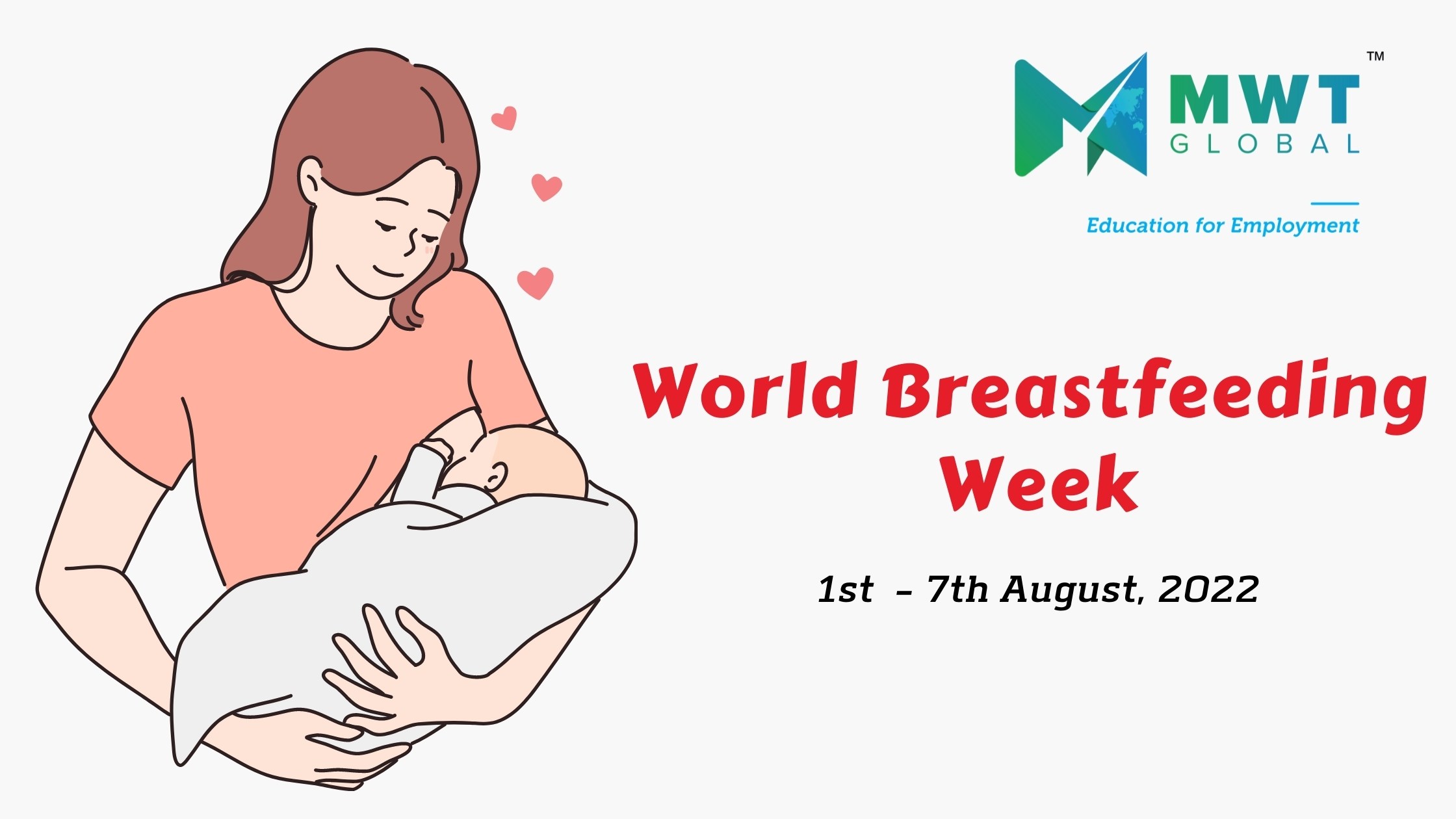
Every year, the month of August starts off with Breastfeeding week, which is observed worldwide to mark the anniversary of the Innocenti Declaration, 1990. This year, the theme for breastfeeding week is “Step up for Breastfeeding – Educate and Support”
This year, World Breastfeeding Week (WBW2022) focuses on strengthening the capacity of core people who need to protect, promote and support breastfeeding across different levels of society. World Alliance for Breastfeeding Action (WABA), which is a global network of individuals and organisations dedicated to protect, promote and support breastfeeding worldwide, has initiated the Warm chain campaign with the mother-baby dyad at the core. This campaign strives to link different core people (actors) across the health, community and workplace sectors to provide a continuum of care during the first 1000 days, begin from the antenatal period until the 2nd birthday of the child.
WABA termed the core people who need to protect, promote and support breastfeeding as ‘actors’. They included obstetricians, midwives, lactation consultants, family members, nutritionists, academicians, and youth and trade unions. Each actor in the Warm chain campaign will help build an enabling environment for all mothers to have a satisfying and effective breastfeeding experience.
Let us see how everyone in society can protect, promote and support breastfeeding.
Obstetricians are primary healthcare providers for mothers, before, during and after delivery. They can play a vital role in breastfeeding support and enable mothers to achieve their feeding goals by
- Establish mother-friendly labour room practices.
- Avoid unnecessary caesarean and instrumental deliveries.
- Avoid inappropriate advice and medications that can lead or require women to discontinue breastfeeding.
- Support mothers to establish an adequate breast milk supply
Paediatricians need to be aware of the strong influence they have on parents over a child’s health issues. Any advice they give on breastfeeding would have a great impact on the choices parents make about breastfeeding. Paediatricians should:
- Always ask about breastfeeding during the consultation
- Inform mothers and families about the long and short-term benefits of breastfeeding.
- Do not prescribe infant formula without a proper medical indication.
Midwives have a powerful influence on a woman’s decision to breastfeed and on the success of her breastfeeding experience. Quality midwifery care improves maternal and infant survival, health and well-being throughout the antenatal, birth and postnatal periods. Midwives can support breastfeeding in many ways:
- Discussion breastfeeding with the youth in reproductive health education.
- Inform mothers and families about the benefits of breastfeeding starting from the antenatal period.
- Enable mother to have an effective and satisfying breastfeeding experience by teaching appropriate breastfeeding techniques, avoid unnecessary separation between mother and child and allow skin-to-skin contact immediately after delivery.
- Provide skilled counselling for breastfeeding during the initial days after childbirth.
- Provide mothers with strategies to enable them to combine breastfeeding and work.
A family member, especially the husband is the breastfeeding mother’s greatest support. If you have a breastfeeding mother at home, support breastfeeding and involve in caring for the baby in the following ways:
- Ask the mother how she wants you to be involved in breastfeeding.
- Create a conducive environment for breastfeeding at home.
Nutritionists can help in shaping food choices, improving nutritional status, and providing preventative and therapeutic intervention in both general and emergency settings.
An academician plays a key role in promoting, supporting and advocating breastfeeding through education and research. The following activities enable an academician to support breastfeeding:
- Ensure that appropriate and adequate information about breastfeeding is included in the curriculum they teach.
- Prioritise research on breastfeeding.
- Support dissemination and implementation of research findings.
An environmentalist can advocate breastfeeding as a renewable and sustainable first food in the following ways:
- Advocate to align policies on breastfeeding
- Reinforce the message that breastfeeding contributes to food security and planetary health.
- Promote breastfeeding as easily available and renewable food.
- Watch out for misleading marketing and donations of breast milk substitutes, bottles or teats. This is not allowed according to the International Code of Marketing of Breast milk substitutes. Inform relevant authorities if such violations are seen.
Trade unions have the power to organise, inform, mobilise workers and negotiate for collective bargaining agreements on paid leave, health and safety, medical assistance, job security, protection from discrimination, and provision of breastfeeding breaks after returning to work, among others.
Youth has the power to change social norms by utilizing innovative approaches and using diverse channels. They can thus play an active role in advocating for an enabling breastfeeding environment by educating themselves about the benefits of breastfeeding, using different methods to share information, call out false information shared on social media. The youth must show respect and encouragement toward a mother who is breastfeeding publicly.
Every member of society can be the actor in the Warm chain campaign, let’s all step out to protect, promote and support breastfeeding in our health care settings homes and workplaces.
